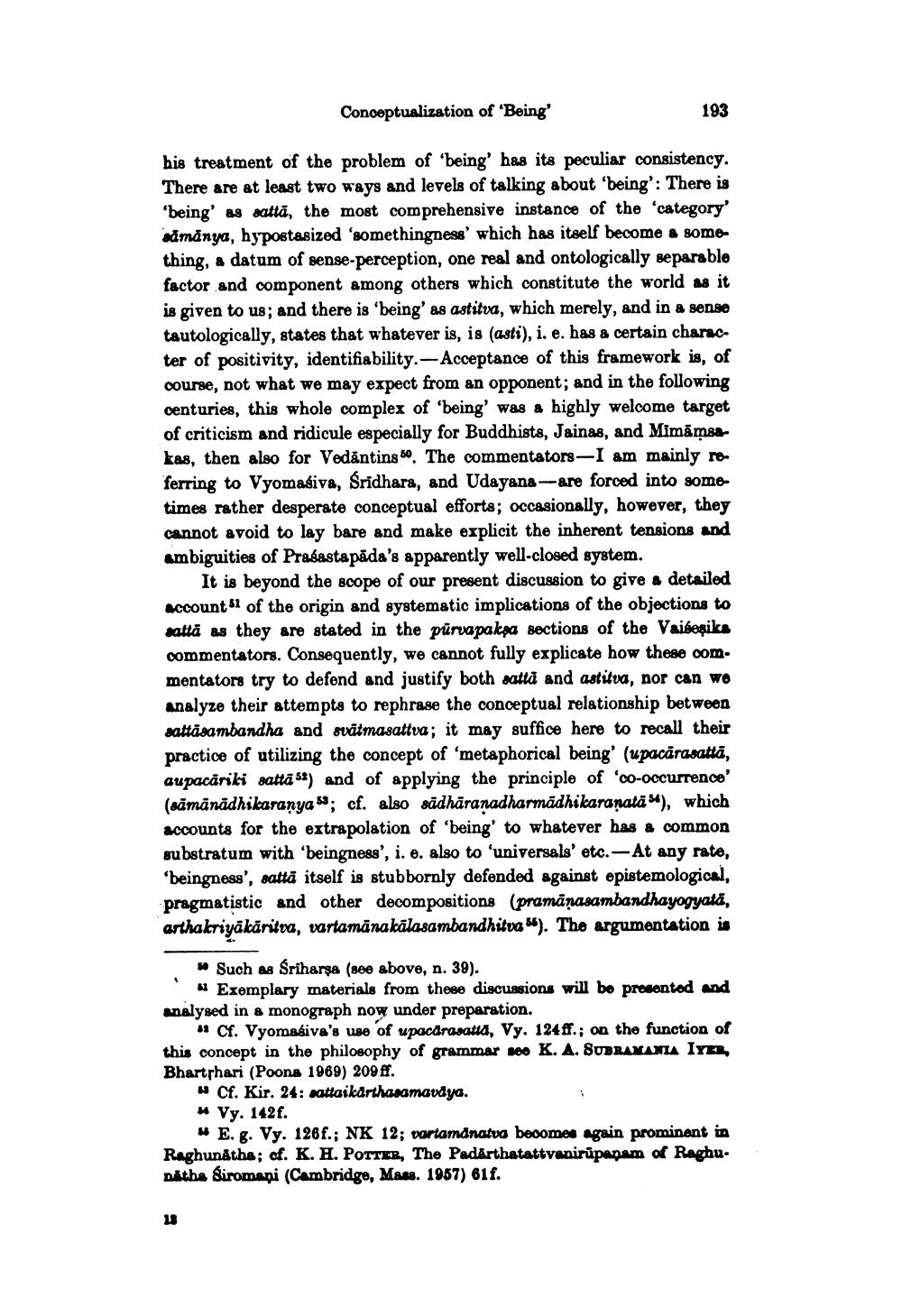________________
Conoeptualization of 'Being'
193
his treatment of the problem of 'being' has its peculiar consistency. There are at least two ways and levels of talking about 'being': There is 'being' as sattā, the most comprehensive instance of the 'category' såmänya, hypostasized 'somethingness' which has itself become a something, a datum of sense-perception, one real and ontologically separable factor and component among others which constitute the world as it is given to us; and there is being' a8 astitva, which merely, and in a sense tautologically, states that whatever is, is (asti), i. e. has a certain character of positivity, identifiability.- Acceptance of this framework is, of course, not what we may expect from an opponent; and in the following centuries, this whole complex of being' was a highly welcome target of criticism and ridicule especially for Buddhists, Jainas, and Mimāmsa kas, then also for Vedāntins 50. The commentators- I am mainly referring to Vyomasiva, Sridhara, and Udayana -are forced into sometimes rather desperate conceptual efforts; occasionally, however, they cannot avoid to lay bare and make explicit the inherent tensions and ambiguities of Prasastapāda's apparently well-closed system.
It is beyond the scope of our present discussion to give a detailed account 51 of the origin and systematic implications of the objections to sattā as they are stated in the pūrvapakpa sections of the Vaibesika commentators. Consequently, we cannot fully explicate how these com. mentators try to defend and justify both satta and astitva, nor can we analyze their attempts to rephrase the conceptual relationship between sattasambandha and svātmasattva; it may suffice here to recall their practice of utilizing the concept of 'metaphorical being' (upacarasatta, aupacáriki sattā 5) and of applying the principle of 'co-occurrence' (sämänadhikaranya ss; cf. also sädhāranadharmādhikaranatā ), which accounts for the extrapolation of 'being' to whatever has a common substratum with beingness', i. e. also to 'universals' etc. - At any rate, 'beingness', satta itself is stubbornly defended against epistemological, pragmatistic and other decompositions (pramanasambandhayogyatá, arthakriyākāritra, vartamánakālasambandhitva 56). The argumentation is
. Such as Sriharsa (800 above, n. 39).
" Exemplary materials from these discussions will be presented and analysed in a monograph now under preparation.
" Cf. Vyomaćiva's use of upacarasatia, Vy. 124ff.; on the function of this concept in the philosophy of grammar 100 K. A. SUBRAYANA IA Bhartshari (Poona 1969) 209ff.
Cf. Kir. 24: sattaikarthasamavdya. - Vy. 142f.
# E. g. Vy. 126f.; NK 12; vartamdnatva becomes again prominent in Raghuntha; cf. K. H. POTTER, The Padarthatattvanirūpapam of Raghu. Dåtha Siromani (Cambridge, Mass. 1967) 61f.




